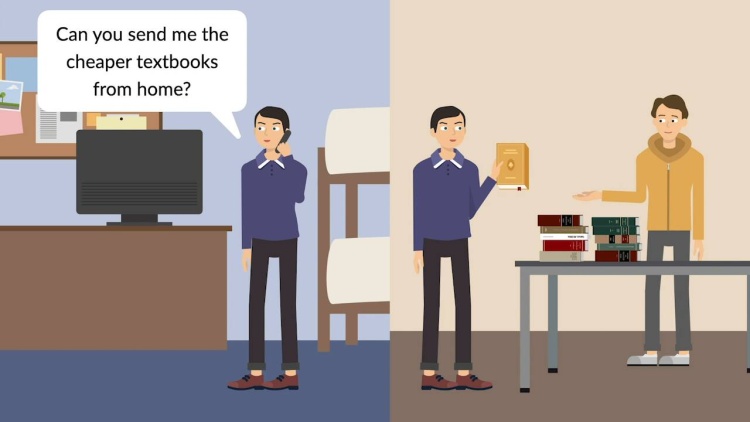Kirtsaeng v. John Wiley & Sons, Inc.
United States Supreme Court
568 U.S. 519 (2013)

- Written by Cynthia (Anderson) Beeler, JD
Facts
John Wiley & Sons, Inc. (Wiley) (plaintiff) published academic textbooks in the United States and abroad. Books printed in Asia were licensed to a foreign subsidiary and then manufactured and sold throughout Asia. The copyright notice on the foreign books stated that the books were only authorized for sale in Europe, Asia, Africa, and the Middle East. Supap Kirtsaeng (defendant) moved to the United States for college and stayed through completion of a PhD program. While living in the United States, Kirtsaeng had friends and family in Thailand purchase English-language textbooks legally sold in Asia and ship the textbooks to Kirtsaeng. Kirtsaeng then sold the books at a lower cost than the United States editions. Wiley sued Kirtsaeng for copyright infringement based on Wiley’s exclusive right to distribute the copyright-protected works. The district court held that the defense of the first-sale doctrine did not apply because the textbooks were manufactured outside of the United States. The appellate court affirmed, with the majority holding that the first-sale doctrine did not apply to copies of American works manufactured outside the United States. Kirtsaeng petitioned the United States Supreme Court for certiorari, which was granted.
Rule of Law
Issue
Holding and Reasoning (Breyer, J.)
Dissent (Ginsburg, J.)
What to do next…
Here's why 907,000 law students have relied on our case briefs:
- Written by law professors and practitioners, not other law students. 47,100 briefs, keyed to 996 casebooks. Top-notch customer support.
- The right amount of information, includes the facts, issues, rule of law, holding and reasoning, and any concurrences and dissents.
- Access in your classes, works on your mobile and tablet. Massive library of related video lessons and high quality multiple-choice questions.
- Easy to use, uniform format for every case brief. Written in plain English, not in legalese. Our briefs summarize and simplify; they don’t just repeat the court’s language.





